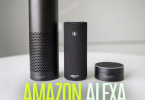Summer brings with it the obligatory carnival, ranging from the neighborhood fun fest featuring amusement park rides that, scarily, are assembled within hours, to the weeklong state fair starring everyone from Blake Shelton to Hillary Clinton.
All contain several common elements: artery-hardening snacks, suspicious looking employees and a midway featuring games of “skill,” a carnival synonym for “unwinnable.”
The lone exception might be the goldfish booth. Parents always attempt to quickly escort their children past this game, knowing that stopping leads to falsely cheering while the little tykes heave Ping-Pong balls towards a collection of water filled glass bowls, each containing a lone goldfish. Land a ball in a bowl and you’ve just added a pet to your family, albeit one that will most likely be dead within 24 hours.
Such a waste for a species that could teach the human race a thing or two about paying attention.
A recent study found that the gilded fish have attention spans of nine seconds, one more than your average, smartphone-addicted human. Ironically, the study was conducted by Microsoft, which contributed to our focus woes by making games like Subway Surfers and Sonic Dash available for free on our Windows phones. To be fair, Android and iOS phones dwarf Windows phones in sales. So include Samsung and Apple when distributing blame for our inability to … wait, what was I talking about?
When I asked my two teen daughters how they felt about losing a brainpower contest to a creature that we sadly flushed down the toilet a few summers ago, they responded with skepticism.
“How do you measure the attention span of a fish?” my eldest inquired.
“Yeah, how?” her sister added.
“Yeah, how?” her sister added.
A fair question. And one I answered by Googling it on my smartphone, a process that took 15 seconds, so I really had to concentrate. Without going into the scientific details, determining fish memory involves placing the little swimmers in a tank, feeding them, returning them to the tank at a later time and recording if, and how fast they find the exact spot where the prior feeding occurred.
“So what?” my daughter said. “I’ve never forgotten where our refrigerator is.”
“Me neither,” her sister said. “And all goldfish do is eat and swim. I can eat, text, Instagram AND listen to music at the same time. That ought to count for something.”
The Microsoft study, conducted in 2015, did conclude our ability to multitask has improved, a finding attributed to our increased dependence on our phones. Sadly, however, the study found our eight-second span had decreased a full four seconds from 2000, the last time a similar analysis was conducted.
“At this rate,” I told my daughters, “we’ll be down to four seconds by 2030. That’s about the time you two will be having kids. Promise to invite me over so I can watch your four-second parenting skills? Please?”
“At least we won’t be raising kids in 2045,” my math whiz daughter interjected. “Using the Microsoft formula, our attention spans will be zero by then.”
I shuddered to think how I, an 82-year-old man in 2045, would function in a world where nobody was paying attention. Imagine being on a crowded subway car where everybody missed their stop.
I sensed an opportunity with my children. “Haven’t your mother and I always taught you girls to try and stand out from the crowd?” I asked. “Well, here’s your chance. Be the exception. Stop looking at your phones all day, and build up those attention spans. In 15 years you could be the sole employee in your office capable of starting and finishing a thought. Everybody will be coming to you for advice!”
“But what if we can’t answer their questions?” my eldest asked.
“Then keep a goldfish on your desks. Just in case.”







